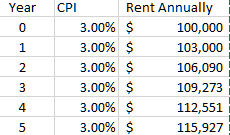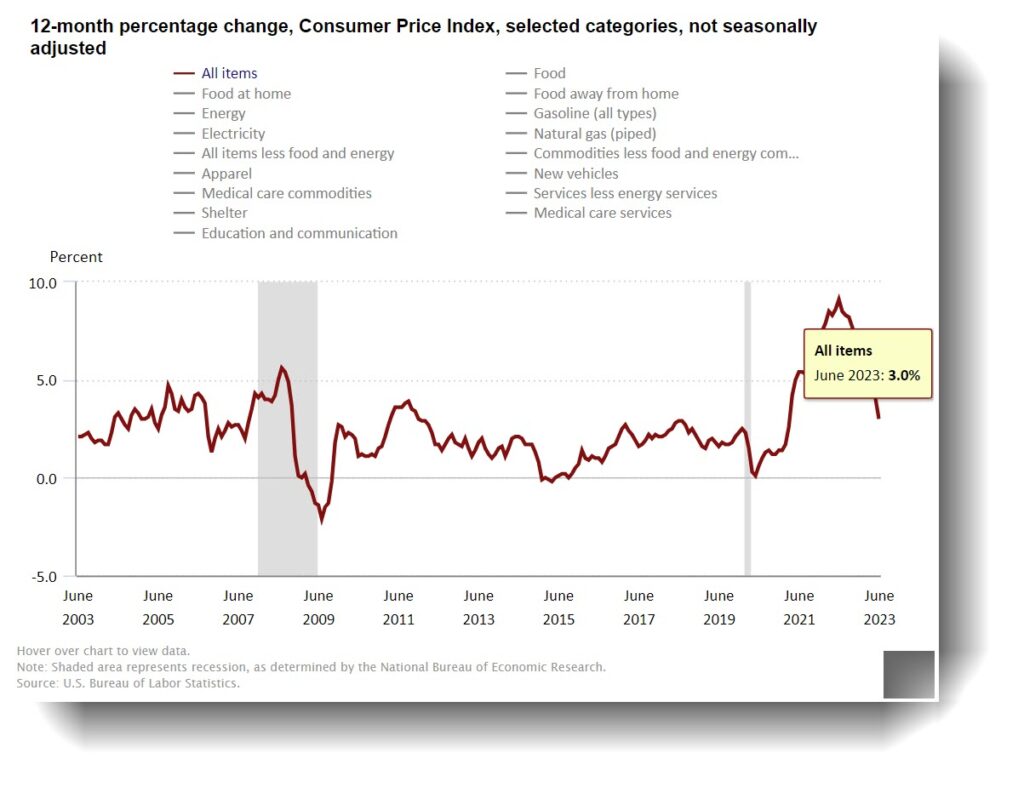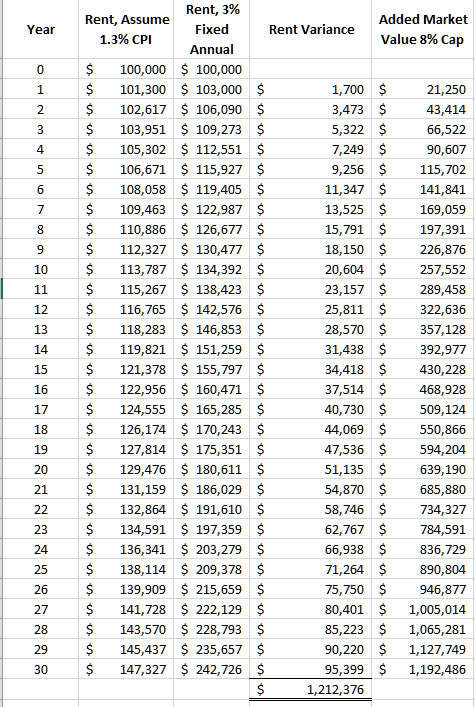Whether you rent office space in Class A towers or a warehouse to store inventory or retail space for your coffee shop, your lease with the landlord probably has terms that are not good for you but that you agreed to anyway. Just make sure your lease renewal doesn't have the three most common mistakes. Even small mistakes can be very costly unless your lease language is clear on every detail.

The history of linking rent payments to inflation became strategic in the days of 1970’s high inflation, when the OPEC oil embargo caused oil prices to skyrocket. When higher oil prices combined with the wage-price spiral, the result was an overnight jump in inflation from 3.2% in 1972 to 11% in 1974. This caused landlords to realize that rental income did not retain its purchasing power, which is the economic theory that a dollar in the future should buy the same amount of goods as it does today. Today it is common practice for leases to include consumer price index (CPI) language to protect landlords, but the problem is that there is more than one Consumer Price Index and there are different ways to calculate each. Even sophisticated tenants and landlords depend on experts to advise them in lease negotiations.
Here is lease language for a medical property that makes the CPI data source very clear:
Consumer Price Index: It is further understood and agreed by and between Lessor and Lessee that, commencing with the first day of the second year of lease, the monthly rental as set forth above will be adjusted upwards at the beginning of the second lease year, and every year thereafter until expiration or termination of the lease using the all urban consumers (CPl-U) United States City Average, All Items, (1967=100)published by the Bureau of Labor Statistics, United States Department of Labor (referred to as "Consumer Price Index").

Always compound if you are the landlord and never compound if you are the tenant. When adjusting for the CPI, it makes a difference if you add the inflation rate for each year rather than multiply the rate by the previous year. Assume a 5 year lease renewal where the CPI was 3% each year for the previous 5 years. Some landlords multiply 5 years times 3% to get 15% for the increase. For a large property with rent income of $100,000 annually, the adjusted rent would be $115,000; however, if the lease is written so the CPI is compounded, meaning each new year is applied toward the previous year’s CPI, the result is rent of $115,927 in year 5. Your lease renewal should spell out how the CPI is calculated.

Our economy today is driven by a different wage/price spiral which causes low inflation. This helps borrowers but hurts landlords and savers. One strategy utilized is to build in a fixed rate adjustment in addition to a CPI adjustment because the challenge for landlords is that the CPI since 2012 has averaged 1.3%. The current CPI doesn’t keep up with 3% average annual medical care increases.
One strategy that benefits landlords is to include lease language stating the rent adjusts based on the CPI or a fixed rate, whichever is higher. The 30 year table below shows how, during an extended period of low inflation, this strategy can dramatically increase the market value. This lease would include language with adjustments based on the CPI, which we assume in this scenario will continue at the average 1.3% annual rate, compared to a fixed rate of 3%. The result, assuming current rent income of $100,000, would be to increase rent by $95,399 in year 30, which at an 8% cap rate adds $1,192,486 more market value to the property.

In conclusion, make sure your lease language details how your rent is adjusted. You can design your table data at the Bureau of Labor website and, if you need help, their phone number is shown on the data release. If you call the number on the press release, the analyst who produced the CPI report will answer any questions. If your property is in outlier data cities such as Detroit, Houston or New Orleans, you can even produce a local Consumer Price Index. Remember to make sure your lease is clear about what CPI is used, how it is calculated and whether you compound your rate, which is why many tenants and landlords hire an expert to advise them. Remember, mistakes can be costly.